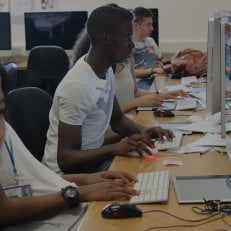Fundraising Consultancy: Diversity, equity and inclusion
Last week, having been closed to new applications for a year to reflect on its future and build all aspects of diversity, equity and inclusion (DEI) into its work, the Tudor Trust announced it won’t be reopening just yet as it takes further time as it strives to be an anti-racist organisation. Their announcement underlines acknowledgement of the institutional nature of racism and the time and effort it takes to do better. It also reflects the increasing importance funders are placing upon DEI – and this can be seen with the continued focus on inclusion, access and participation in the new NLHF 10 year strategy.
Whatever your role in the third sector, dismissing DEI as a tick boxing exercise is not an option. Other organisations will have far greater authority and insight to speak out, and advise on taking organisational action on these issues. But what we do know, from speaking to smaller charities and organisations, is it can feel difficult to know where to start. We know that being able to meet funder DEI requirements needs to be part of the fundraisers’ toolbox. And we have experience of how fundraising consultants can help address DEI issues when working with clients.
So, we’ve pulled together some information on DEI and some issues to consider from the funding/fundraising perspective.
Starting with the basics
Although diversity, equity and inclusion are interconnected, they are not interchangeable. Put simply, diversity is about representation; inclusion is about participation and being valued; and equity is about fairness recognising we do not all start from the same place.
Crucially, action on diversity does not automatically lead to impact on inclusion or equity. For example, if your workforce better represents ethnic minorities or disabled people, this may not mean they are valued or lead to representation at management level without addressing deeper, structural imbalances. One step might be to have a roadmap to improve recruitment, retention and progression for ethnic minorities.
Call to action on structural inequity
For some, the flaws of DEI – or all too often diversity and inclusion where the equity gets dropped – ignore the structural nature of inequity. Refocusing the conversation to one “about power and privilege”, #CharitySoWhite has the following calls to action for “every leadership team across the charity sector”:
- Prioritise candid and honest conversations about racism
- Publicly acknowledge racism within the sector and within their organisations
- Commit to tackling institutional racism within their organisations and in the sector.
These calls for action provide a specific focus for anti-racist work. They can also inform an approach to inequity more broadly, that organisations commit to talk about, acknowledge and tackle structural inequity.
Supporting clients
Craigmyle’s wide-ranging fundraising and development services address issues that make a client and a project fundable. In doing so, our consultants help develop the organisation, its capacity and resources; develop fundable and successful projects; and develop relationships that lead to gifts.
Consideration of how to be fundable organisations needs to include DEI and as consultants we can play a role in supporting clients on this.
For example, getting to grips with measuring and demonstrating impact can be challenging for small charities. Yet adjustments to data collection, to log the ethnic backgrounds of service users, could help establish a baseline of how well (or not) your charity service is ensuring that all groups are able to access their service. Analysis to help identify barriers and solutions could be the focus of a new project that could well attract funding.
For clients who have DEI objectives identified in their strategic plan, consultants can help them develop a coherent case for support, consider the right funding mix to achieve their aims and provide practical advice on how best to approach prospects.
And if an organisation has bought in consultancy expertise to write a large funding application, for example to the NHLF, then the consultant will work with the client to meet funding requirements. This will include how the specific project will address inclusion and how best to present and incorporate DEI elements within the project so it is compelling and integrated.
Whether working with a fundraising consultant or not, here are some DEI related issues your organisation may want to think about:
- Does your organisation have the necessary DEI policies in place to be fundable by trusts and foundations?
- Who is on your governance and leadership teams and what action are you taking towards diversity?
- Does your charities’ impact measurement include DEI issues?
- Have you incorporated a DEI lens when developing your case for support?
- When you develop new projects, what process is there for identifying and addressing DEI issues?
- Does your organisation have in-house capacity to address donor requirements for inclusion in bid-writing?
Proiving tailored fundraising and development coonsultancy services, Craigmyle Fundraising Consultant’s clients include charities, churches, museums, arts organisations, schools and universities. If you need additional fundraising capacity or expertise, or you want a valued external perspective, and want to discuss how we may be able to help, get in touch today.





